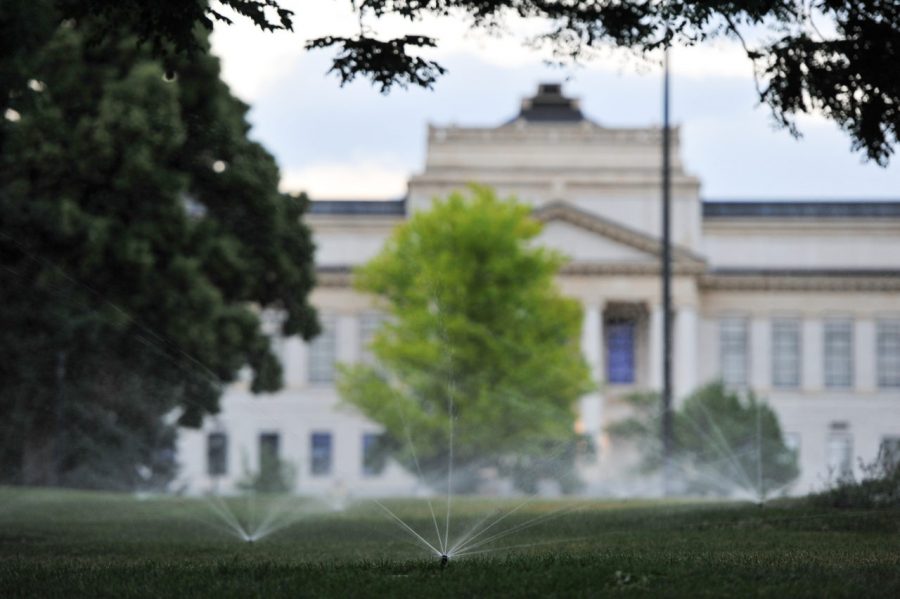Water is the world’s most valuable life source. Without water, there is no us. So what is going to happen when we get to those last few droplets at the bottom on the lake? We’re running low on snow pack, which means we will run low on water in the upcoming months. Utah is the second driest state in the country and one of the highest domestic users of water per capita according to The Huffington Post.
In much of Utah’s southwest, the water supply comes from the Colorado River, but the farther down the river you get, the drier it is. During flash floods, which are common in the Southwest, contaminated water often gets poured into the Colorado River.
Groundwater, water that is pumped from beneath the earth, is the source of around 50 percent of the United States’ water supply, according to groundwater.org and Utah is becoming more and more dependent on groundwater. The biggest issue with groundwater is that it is used up quickly, as it is only freshly refilled from snow or rain. And when we continue to use groundwater that we don’t actually have, we end up using groundwater that has been polluted by things such as underwater gas tanks and overuses of fertilizer. According to Standard Examiner, an EPA-ordered water test found that all drinking water in Utah contained bits of a metal called chromium-6, a cancer-causing metal, in 2015. We Utahns don’t really notice anything wrong with the water we drink, but I’ve heard many people from the great, rainy state of Washington say that they are scared to drink the water here.
Additionally, the average American uses up to 100 gallons of water per day, according to the United States Geological Survey. The average Utahn uses over twice as much. Utah needs to come up with a solution to our overuse of water, but in the meantime there are several things that individuals can do to cut back on water usage. Take shorter showers. The average shower lasts 10 minutes and uses about 20 gallons of water. Cutting back even a few minutes will end up saving a lot. And looking at those who live on campus who take extra long showers because they don’t get a water bill every month, cut back. I understand that it’s tempting to take an hour-long shower after a stressful day of classes, but just remember, you and everyone else will be paying for it later.
Try to use less electricity. People always forget that electric power plants use water too, so by cutting back electricity, you’re also saving water. “According to the U.S. EIA, the average home in that country uses 10,837 KWh per year,” said Michael Barnard of Quora.com, “which means that just electricity use for the average family withdraws about 120,000 – 300,000 gallons (530,000-1,300,000 liters) annually, and about 3,000 – 7,300 gallons (13,400 – 33,000 liters) is lost entirely, ignoring the thermal shock and pollution.”
You know how when you make pasta, you drain the noodles and pour the water down the sink? Well, instead, why don’t you pour it in a bucket and use that to water your plants later? What about hand-washing your dishes? Or at least wait until the dishwasher is completely full to run it. The dishwasher uses more water than flushing a toilet, up to six gallons of water per cycle. Besides, unless you have an ultra powerful, newer dishwasher, you need to scrub your dishes clean before putting them in anyway. You may as well just clean them completely right then. Dry them with a towel, and I bet you can’t even tell that they weren’t dishwasher-cleaned.
The biggest water user in a household is the washing machine. A single load of clothes can use 27-40 gallons of water, depending on the washer model. A great way to save water is to play a little game called “let’s see how long I can go without doing laundry.” This is my favorite. If you’re like me, you tend to wear the same five outfits over and over again, just mixed and matched. By forcing yourself to wear other articles of clothing, you’re saving water, and putting the clothes you spent good money on to use. Ever since I stopped doing laundry every week, I’ve rediscovered clothes that I forgot I had.
Many of these things seem small and insignificant to saving water, but, just like water droplets themselves, the more that get involved, the bigger the changes are made. People often take for granted what they have. We’ve always had water so we’ve been conditioned to believe that we will always have water. But with dry winters come even drier summers. Even the Great Salt Lake is shrinking and has been for years. Unless we want to end up like California and Nevada, we need to change our habits.


